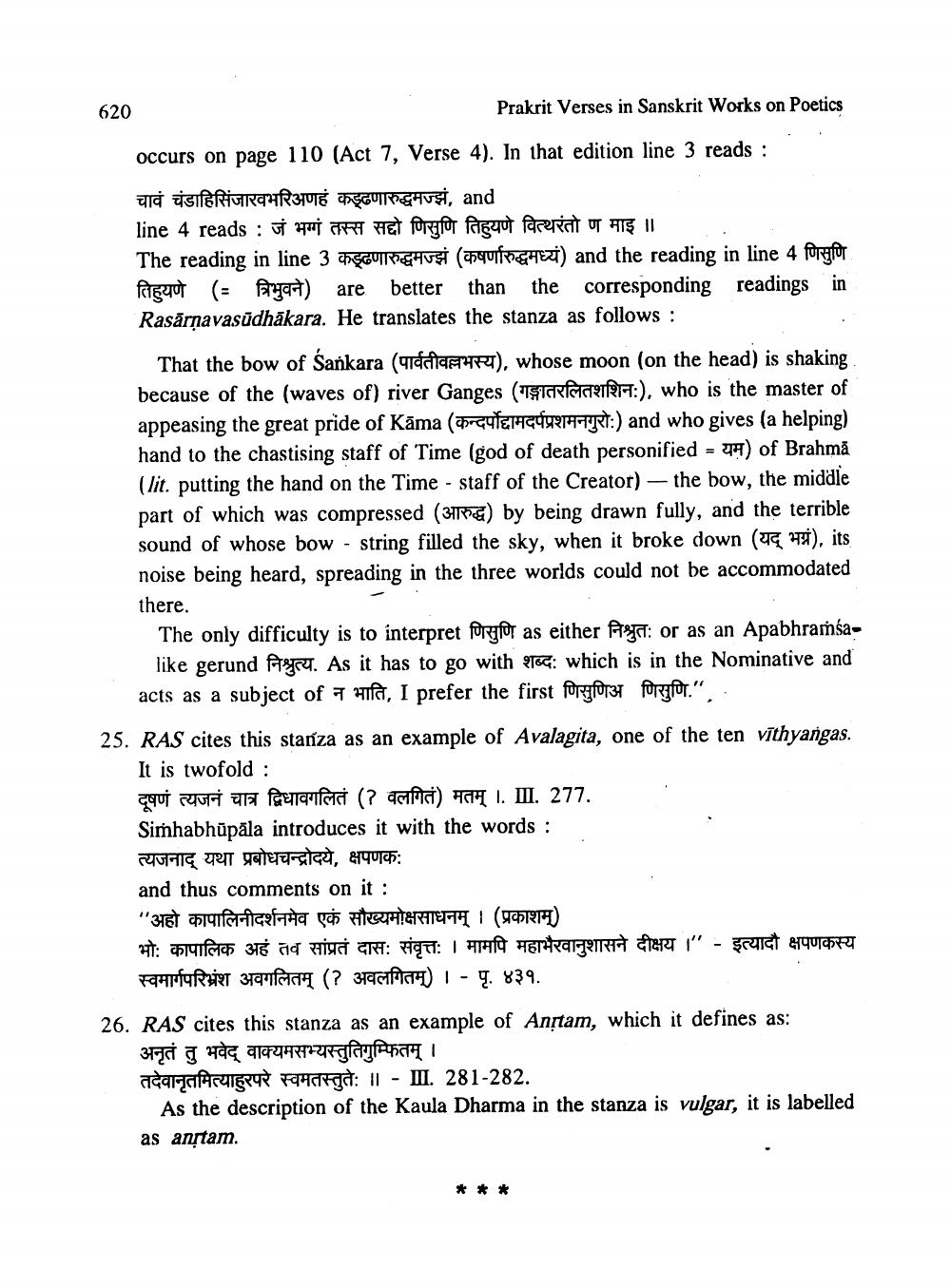________________
620
Prakrit Verses in Sanskrit Works on Poetics
occurs on page 110 (Act 7, Verse 4). In that edition line 3 reads :
चावं चंडाहिसिंजारवभरिअणहं कड्ढणारुद्धमज्झं, and line 4 reads : जं भग्गं तस्स सद्दो णिसुणि तिहुयणे वित्थरंतो ण माइ ॥ The reading in line 3 कढणारुद्धमज्झं (कषर्णरुद्धमध्य) and the reading in line 4 णिसुणि तिहुयणे ( त्रिभुवने) are better than the corresponding readings in Rasārnavasūdhākara. He translates the stanza as follows:
__ That the bow of Sankara (पार्वतीवल्लभस्य), whose moon (on the head) is shaking because of the (waves of) river Ganges (गङ्गातरलितशशिन:), who is the master of appeasing the great pride of Kama (कन्दर्पोद्दामदर्पप्रशमनगुरो:) and who gives (a helping) hand to the chastising staff of Time (god of death personified = 1) of Brahma (lit. putting the hand on the Time - staff of the Creator) - the bow, the middle part of which was compressed (31776) by being drawn fully, and the terrible sound of whose bow - string filled the sky, when it broke down (यद् भग्न), its noise being heard, spreading in the three worlds could not be accommodated there.
The only difficulty is to interpret forgfor as either A n: or as an Apabhramśalike gerund Pep. As it has to go with grog: which is in the Nominative and acts as a subject of 7 Hild, I prefer the first forgf0737 forgfot.".
25. RAS cites this stanza as an example of Avalagita, one of the ten vīthyangas.
It is twofold : दुषणं त्यजनं चात्र द्विधावगलितं (? वलगित) मतम् ।. III. 277. Simhabhūpäla introduces it with the words: त्यजनाद् यथा प्रबोधचन्द्रोदये, क्षपणक: and thus comments on it : "अहो कापालिनीदर्शनमेव एकं सौख्यमोक्षसाधनम् । (प्रकाशम) भो: कापालिक अहं तव सांप्रतं दास: संवृत्त: । मामपि महाभैरवानुशासने दीक्षय ।" - इत्यादौ क्षपणकस्य स्वमार्गपरिभ्रंश अवगलितम् (? अवलगितम्) | - पृ. ४३१.
26. RAS cites this stanza as an example of Antam, which it defines as:
अनृतं तु भवेद् वाक्यमसभ्यस्तुतिगुम्फितम् ।। तदेवानृतमित्याहुरपरे स्वमतस्तुते: || - III. 281-282.
As the description of the Kaula Dharma in the stanza is vulgar, it is labelled as anrtam.
*
*




